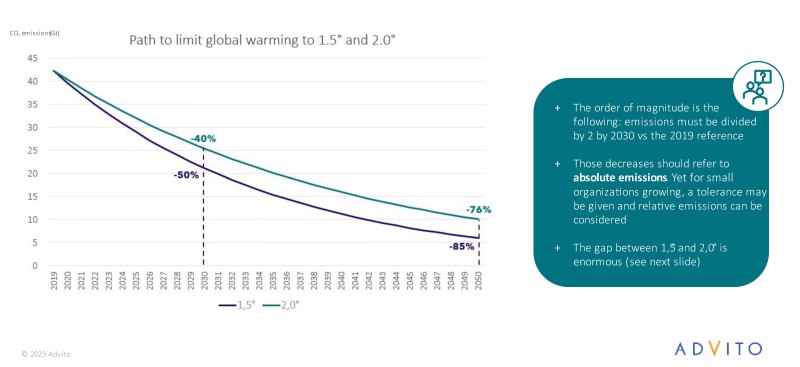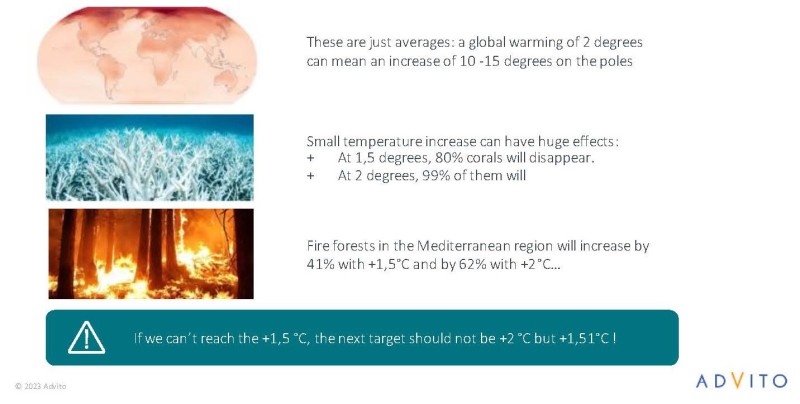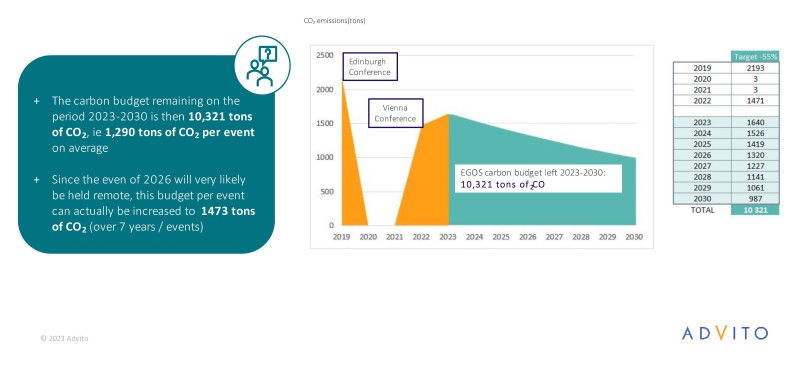Around 93% of the emissions from EGOS Colloquia stem from air travel, given that the event organizers on site have already
taken important emission reduction measures such as reducing waste and meat consumption. While the majority of emissions stem
from long-distance flights, it is mainly the mainland European participants that can take the most action by switching to
train travel wherever possible.
In addition, every traveler to EGOS can avoid connecting flights and instead take trains to/from airport hubs. Furthermore,
for EGOSians that want to avoid long-distance travel, virtual participation options will be provided at EGOS Colloquia. Some
emissions will be saved by improvements in aircraft technology.
While CO2 decrease is now the main focus of most organizations, other sustainability elements must also be considered. Each EGOS event
can have a significant impact on biodiversity, water consumption, waste, etc. Hence, EGOS agreed that local organizers (cf.
https://www.egos.org/egos/about_egos/egos_Sustainability_Principles) provide only vegetarian and vegan food (which impacts biodiversity and prevents deforestation rather than reduces CO2 emissions) or recommends hotels with good sustainability credentials.
Of course, the EGOS Board is aware of the possibility of rebound effects (for example, will more EGOSians attend other conferences
in addition to the blended EGOS Colloquium 2026 than usual?) and also the lack of precision in calculating the emissions (for
example, we do not have the exact flight information, although different airlines and aircraft come with different emissions,
or scholars may make attending EGOS just one of several activities of a long-distance trip, etc.). Yet, complexity of the
issue at hand cannot imply stopping to try to make our own contributions as a scholarly community to the challenge of mitigating
climate collapse and implementing the Paris Agreement.
The EGOS association is seen as a forerunner on sustainability by other associations, and is frequently approached by them.
The EGOS Board also actively reaches out to other associations and is a member of IFSAM in the attempt to exchange best practices
and possibly even coordinate some activities.



